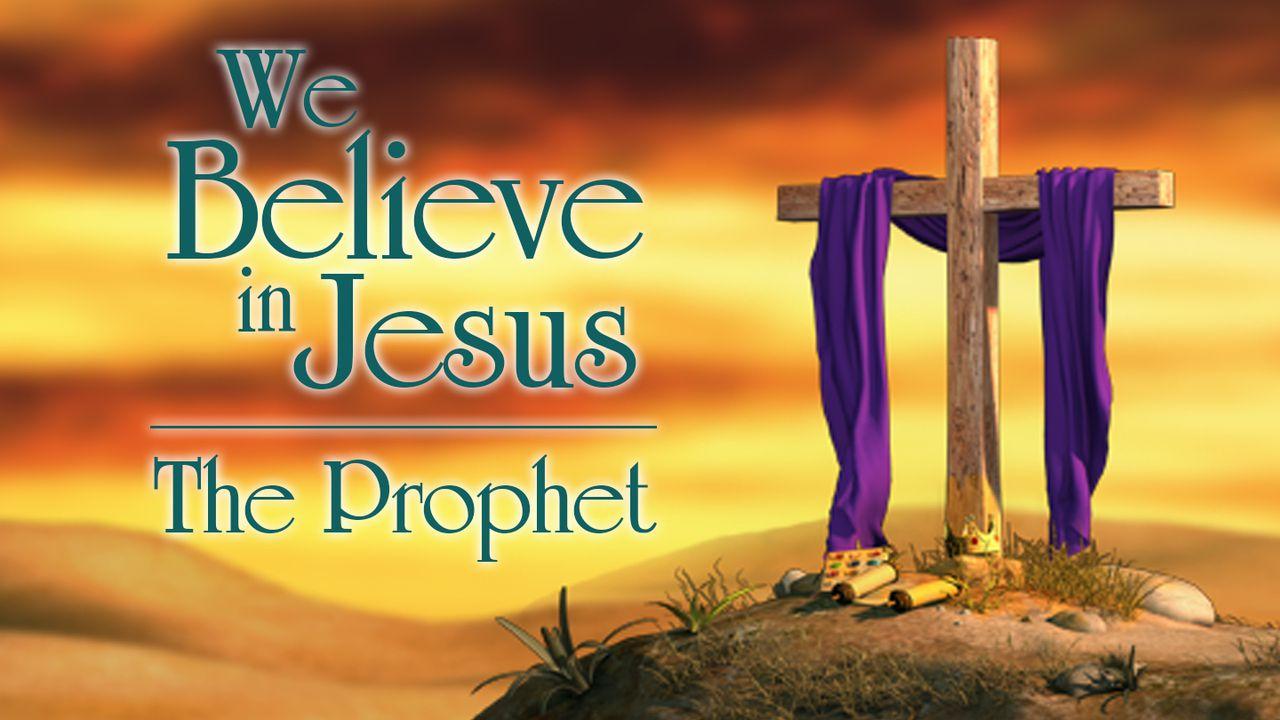We Believe In Jesus: The ProphetSample

Authenticated by Fulfillment: Deuteronomy 18:22
All the words of God’s prophets could be depended on because they accurately relayed the words of God, whose character and covenant promises are utterly trustworthy. True prophecies are unfailing because God has both the power and the right to bring them to pass in whatever way he intends, and because he is committed to keeping his word.
Sometimes, prophecies were authenticated by relatively quick fulfillment. For instance, in 1 Kings 17:1, the prophet Elijah declared that there would be no rain or dew until he gave the word. And as we learn in 1 Kings 18, it remained dry for three years before God finally ended the drought. And in 2 Kings 7:17-20, we see an immediate fulfillment of Elisha’s prophecy that the king’s officer would die.
At other times, prophetic fulfillments were not so immediate. For example, around the year 930 B.C. a true prophet predicted the birth of Josiah, who would be a faithful heir to David’s house. This prophecy is recorded in 1 Kings 13:2. But the predicted child Josiah wasn’t born until about 630 B.C. — almost 300 years after the prophecy — as we read in 2 Kings 22:1. And the prophecies about Jesus’ birth took even longer to fulfill.
Now, at this point we should pause to mention that sometimes even the words of true prophets did not come to pass precisely as they stated them. But in light of Moses teaching, how could this happen? In order to answer this question, it’s important to realize that when we read Old Testament prophecy, we sometimes get the wrong impression of their predictions. Although many people think that the prophets predicted the future precisely as it would unfold, in reality, this was not always the case.
For the most part, prophets warned of the curses that would come if people persisted in sin, and they offered the blessings that would come if people acted faithfully. The goal of these prophecies was to motivate the people to repent of their sin and to persevere in faithfulness to God and his covenant. Only when true prophets indicated that God had sworn to do something were their predictions absolute.
As a result, one legitimate way for prophecy to be fulfilled was for the people to change their behavior and thereby affect the outcome of the prophecies. In these cases, the prophecies were actually fulfilled properly, even though their warnings or offers did not come to pass as stated.
Scripture
About this Plan

This reading plan investigates the doctrine of Christology, focusing on the person and work of Jesus Christ. Jesus is God in the flesh, the center of all history, and the only hope for the salvation of humanity and creation. This plan explores Jesus' fulfillment of the Old Testament office of prophet.
More
Related plans

Journey Through the Minor Prophets, Part 1

What Is the Fear of the Lord?

Living in the Tension: A Study on the "Now and Not Yet" Kingdom of God

THE BRAIN THAT SEEKS GOD: Neuroscience and Faith in Search of the Infinite

"An INVITATION to FOLLOW : A 5-Day Journey Into Discipleship"

Who Is Jesus? 7 Days in the 'I Am' Statements

Mental Health and the Bible

It Is Well

Grow Through It: 7 Healing Practices That Cultivate Resilience a 7-Day Reading Plan by Essie Faye
